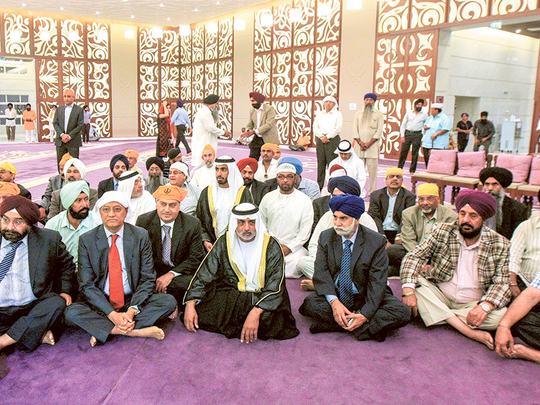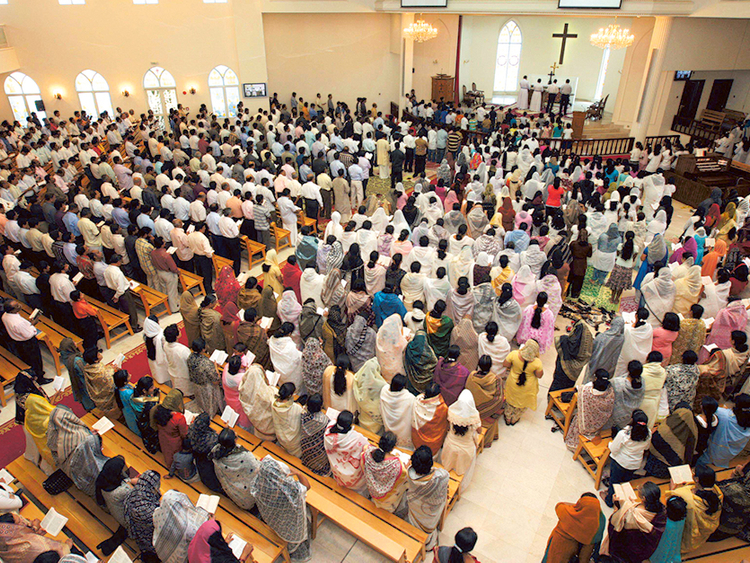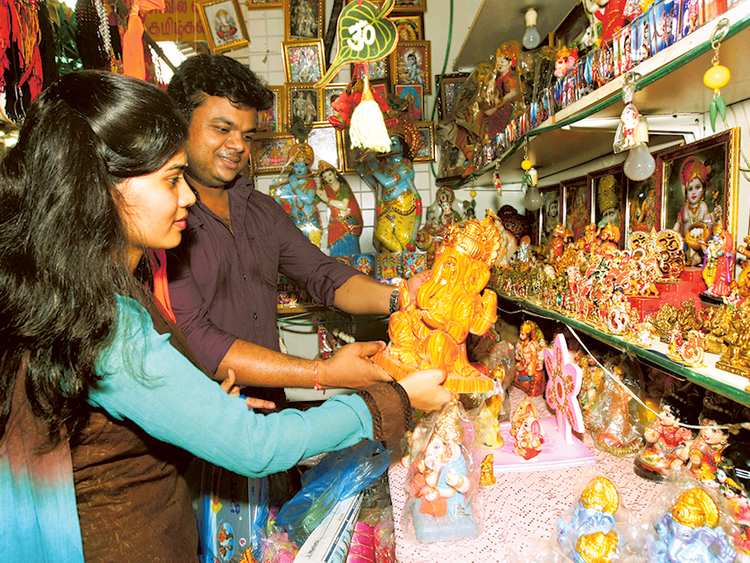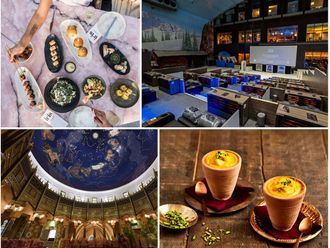
Abu Dhabi: Religious leaders have hailed the UAE as a haven of tolerance where religious communities from around the world are free to practise their faith.
Speaking to Gulf News ahead of Tolerance Day, Jeramie Rinne, Senior Pastor at Evangelical Community Church in Abu Dhabi that hosts more than 16,000 believers of around 100 nationalities from across the world, said the community is extremely grateful to the opportunity to worship freely here. “The UAE is a remarkable example for the region and the world in supporting and promoting tolerance,” he said.
The church receives 1,300 worshippers of 50 nationalities for prayers in English each weekend. Around 50 other churches representing about 15,000 believers of almost 50 nationalities also conduct prayers in many other languages such as Hindi, Telugu, Tagalog, Arabic Ethiopian, Korean, Chinese, etc.
“As Christians we have been taught the gospel — love your neighbour. We are excited to be part of the UAE’s initiatives to promote tolerance, therefore we can love our neighbours along with the UAE,” Rinne said.
Lalit Karani, chair of Hindu Mercantile Community that manages the Krishna temple in Bur Dubai, said the presence of a Hindu temple in a Muslim country for 100 years in Dubai itself is one of the biggest examples of the UAE’s tolerance and harmony. “We have never faced any problems from anybody despite the fact that the door of the temple and the door of the neighbouring mosque are facing each other. We highly appreciate the efforts of the government for promoting tolerance and we are very happy to contribute to the same from our side,” Karani said.
Similarly, Surender Singh Kandhari, chairman, Guru Nanak Darbar Gurudwara in Dubai, said the UAE’s efforts to promote tolerance are innovative, which will ensure communities are peaceful and protected from hate. “From the time of Guru Nanak’s [founder of Sikhism] first teaching to the present time of racial and religious struggle, it is clear that humanity needs more acceptance and tolerance in our interactions with each other, not only externally but also internally,” Kandhari said.
Sunil Chandrakumara, a representative of the Buddhist community in the UAE, said his community was proud of living in a country that promotes tolerance. “Buddhism teaches practising tolerance not only to all human beings but all living beings, which we feel is being practised in the UAE,” said Chandrakumara, who has lived in Dubai for 27 years. Although there is no Buddhist shrine in the UAE, the community has felt free to practise its religion here, he said.
Ahmad Al Haddad, Grand Mufti of Dubai, said tolerance is considered a cornerstone in the UAE and is represented by the hosting of 202 different ethnicities coexisting and living peacefully and securely.
The UAE feels its obligation in adopting tolerance measures and programmes among all society members for its importance as a value among people and it’s not just about the religious aspect but includes culture, morals, ethics and civilisation, he said.
Very Reverent Father Mesrob Sarkissian, Catholicosal vicar of Armenian Church in the UAE and Qatar, said around 10,000 Armenians of various nationalities living in the UAE are grateful to the UAE leadership for being able to preserve their identity, language and culture. “This is a good example of the UAE’s tolerance and harmony. From the 1960s, we have been part of the UAE society.”
The first Armenian church in the UAE was opened in Sharjah in 1998 and the second one in Abu Dhabi in 2014.
Vasu Shroff, chief of the Hindu temple in Bur Dubai, said: “Some 500 people visit our temple every day and on the day of Maha Shivaratri, tens of thousands of worshippers visit the temple. It is only because of the tolerant nature of the government here that we are able to follow our religious practices here in a harmonious way,” Shroff said.
-With inputs from Asma Samir, an Abu Dhabi-based journalist










